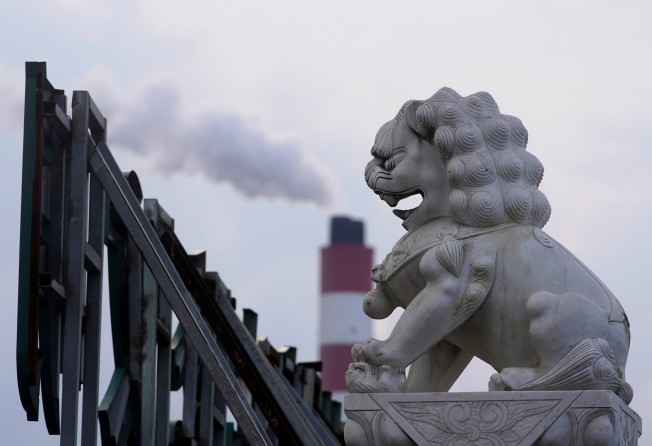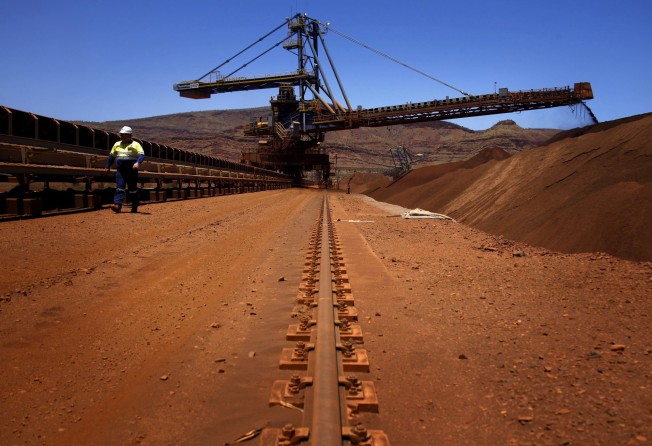
23:20
Talking Post: Kevin Rudd unpacks the risk of war between China and the US with Yonden Lhatoo

Australian companies are continuing to do business with China not just for commercial reasons but because of a focus on climate change and carbon emissions reduction policies, new research has found.
Even though political relations between the two countries have sunk to their lowest in decades and Australian firms continue to suffer blowback for doing business with China, many have vowed to keep up their links with the world’s second-largest economy.
Their reasoning is that investment in any market, particularly one as complex as China, needs to be a long-term commitment, according to a new report by the Australia-China Relations Institute (ACRI).
Firms dismissed the notion they had been naive about doing business in and with China, saying they had assessed the risks and were not overexposed to the market, said the report, released on Tuesday.
Some – like Woodside, one of Australia’s largest LNG producers – said they also liked working with China because of its “commitment to cleaner energy”.
Woodside’s chief representative in China, Kristine Leo, told ACRI that not only was “China’s commitment to cleaner energy a factor in ensuring a continued market for Woodside’s LNG” but Woodside and its Chinese partners shared common climate goals.
“We have strong existing relationships with joint venture partners and other stakeholders in China aimed at furthering mutual development goals to support climate targets and the supply of cleaner energy,” Leo said in the report, titled “Behind the headlines: why Australian companies are still doing business with China”.
“China’s future economic growth and recently announced emissions targets mean it is expected to have strong demand for lower-carbon energy, such as LNG.”
“China’s focus on innovation and emissions targets aligns well with Woodside’s climate ambitions and priorities.”
China is on track to become the world’s largest LNG (liquified natural gas) importer, overtaking Japan, according to commodities intelligence service ICIS. Chinese imports this year are forecast to leap by 21 per cent. Gas is a cleaner fuel than traditional sources of energy like coal.
Australian businesses’ engagement with China on climate change and China’s commitment to the issue – which took centre stage at the recent COP26 summit when Beijing and Washington agreed to boost climate cooperation – has highlighted a relative lack of action on Canberra’s part.
Australia, which released its long-awaited net zero 2050 plan only a week before COP26 last month, has not signed up to the US-China plan to reduce methane and end support for new coal projects.
Another Australian company, and one of the world’s biggest iron ore producers, Fortescue Metals also said it had committed to tackling decarbonisation problems with China, its biggest customer.

A continued relationship with China, the world’s biggest consumer of iron ore, was crucial to its green goals, Fortescue chief executive Elizabeth Gaines told ACRI.
“Collaboration will be key to achieving global emissions reduction goals, and this includes ongoing engagement with our customers in the crude steel manufacturing industry in China to learn about the challenges they face in decarbonising their operations,” Gaines said.
A partnership with China also provided “economic stability” to the company and supported jobs, she said.
The Australian China Business Council said Australian businesses showed interest in collaborating with China on climate change projects.
Cooperation would not only help China and Australia contribute to the global fight against climate change, but provide an opportunity for the two countries to reset their relationship, its national president David Olsson said.
Cooperation would not only help China and Australia contribute to the global fight against climate change, but provide an opportunity for the two countries to reset their relationship, Ollson said.
The council and the China Chamber of International Commerce will host a virtual meeting next week to explore opportunities for Australia-China collaboration on carbon reduction goals in the mining, energy and resources sectors.
“The council has identified the growing global commitment to address the climate crisis as a unique chance to reframe Australia’s relationship with China,” he said.
“Climate change is the one area where Australia and China are most aligned in our ambitions … and which offers the greatest scope for future collaboration.”
More, however, could be done by the Australian government to steer this along, said global advisory ICF lead climate specialist Huw Slater, who is based in Beijing.
Unlike the European Union, the United States and Britain, which have established networks for finding climate change project opportunities with China, there was limited support from the Australian trade department for such ventures, Slater said.
“While there are a number of Australian businesses with expertise and technology that could be valuable in facilitating China’s low-carbon transition, and there is support from Austrade, we don’t have the same level of bilateral engagement that other similar countries have with China,” Slater said.
“If there is an easing of bilateral tensions, perhaps after the next election, then there may be an opening to propose something similar to what others are working on with Beijing.”
The Australian national election next year could be another opportunity for a relationship reset, ACRI report author Glenda Korporaal said.
A Labor government – as opposed to the current Liberal government – would handle the relationship with China differently, she said.
“I think there would be less gratuitous offence. I think they would try and have a better relationship,” she said during a webinar discussing the report.
She also said the Australian business sector’s pragmatic view of China was a contrast to the local media’s framing of Australia’s relationship with China.
Businessman Clinton Dines also told ACRI Australians had not “reflected deeply on the windfall benefits of having an economy which was so fortunately complementary to China’s”.
“As a result, Australia has been left with no coherent narrative about the importance of the relationship,” he said.
Alastair Symington, chief executive of supplements company Blackmore - which is well-known in China - said while national security was important, it had overshadowed the China debate in Australia.
“We always have to recognise that there are national security issues, but it shouldn’t override our ability to trade with our neighbours,” he told ACRI.
“China is not going anywhere. It is going to be our biggest trading partner for a long time and we have to find a way to make the relationship work.”